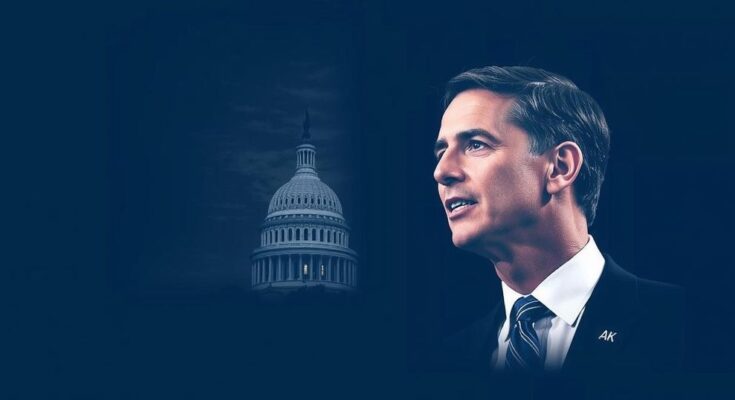President-elect Trump has nominated Robert F. Kennedy Jr. as head of the Department of Health and Human Services, provoking debate over his vaccine skepticism and unconventional health views. This appointment raises concerns about public health policy trust amidst ongoing political and health crises, with a divided Senate likely to consider his confirmation carefully.
In a surprising twist in political appointments, President-elect Donald Trump has announced the nomination of Robert F. Kennedy Jr. as head of the Department of Health and Human Services. Known for his controversial views, particularly his skepticism towards vaccines, Kennedy’s nomination raises eyebrows among public health officials who fear his unorthodox stances could endanger national health policy. Critics, including former CDC chief Dr. Richard Besser, call his potential appointment “absolutely frightening” and believe it could exacerbate public mistrust in health systems that have been strained in the wake of the pandemic. Kennedy’s public persona oscillates between advocating for conventional nutrition and promoting various unsubstantiated claims regarding vaccines and public health policies. While some of his beliefs, such as a focus on nutrition, align with mainstream health perspectives, they are overshadowed by his long-standing promotion of discredited theories, like the myth linking vaccines to autism. His contentious relationship with the FDA and other health agencies adds to the unease surrounding his nomination, raising questions about whether he can garner the Senate’s approval amidst his polarizing reputation. The political landscape is equally divided; several Republican senators express reservations about Kennedy’s background and statements. However, the support from more Trump-aligned senators showcases the fractious nature of the ongoing party dynamics. Notably, Kennedy’s alliance with Trump offers a unique opportunity for both men, as each seeks to expand their influence in the health discourse, particularly regarding issues surrounding the “chronic disease epidemic.” Moreover, Kennedy’s position regarding regulatory authorities— promising to overhaul the NIH and addressing what he terms their “war on public health”—has sparked significant alarm among experts who recognize the potential for misinformation. As Dr. Mandy Cohen, the current CDC director, articulated, the risk of misinformation transforming into policy under Kennedy’s leadership could have dire consequences, especially in the unpredictable realm of infectious diseases. Thus, the nomination of Robert F. Kennedy Jr. stands at the crossroads of politics and public health, igniting debates about the future direction of health policy and trust in governmental health institutions. Whether he will prevail in securing confirmation remains a pressing question as public health officials and the political community brace for the ramifications of this unusual appointment.
The article discusses the implications of President-elect Donald Trump nominating Robert F. Kennedy Jr. to lead the Department of Health and Human Services. Kennedy is known primarily for his skepticism of vaccines and untraditional views on public health, making his nomination controversial. In light of the pandemic and existing mistrust in public health systems, the piece questions whether Kennedy can be confirmed by the Senate and what that means for national health policy.
Kennedy’s nomination has polarized opinions, combining fervent support from some Republican lawmakers with profound concern from public health officials. His history of controversial stances could hinder his confirmation, yet his alignment with Trump offers him a unique platform. Ultimately, the unfolding dynamics will determine whether Kennedy can reshape public health policy or if opposition will stymie his potential influence.
Original Source: www.nytimes.com



